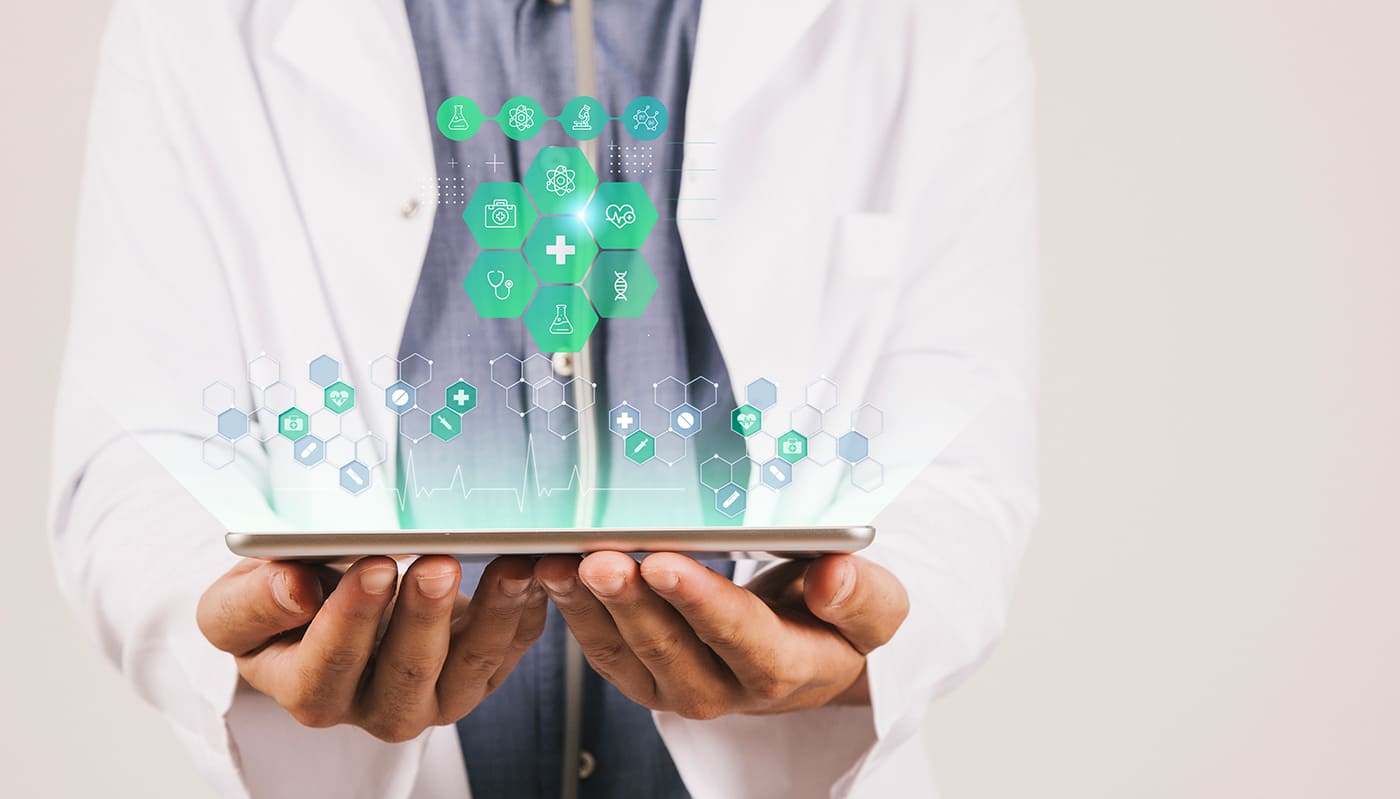The Intersection of Healthcare and Technology: Revolutionizing the Path to Wellness

In recent years, the healthcare industry has witnessed a remarkable transformation, driven by the rapid advancements in technology. The integration of technology into healthcare, practices has revolutionized the way we approach diagnosis, treatment, and overall patient care. From telemedicine to electronic health records, innovative technologies are reshaping the landscape of healthcare and offering unprecedented opportunities to enhance efficiency,
Improve patient outcomes, and promote preventive care.
While the benefits of healthcare technology are undeniable, it is crucial to address concerns related to data security, privacy, and equitable access. Safeguarding patient information and ensuring data privacy is paramount in this digital age. Robust cybersecurity measures and stringent regulations are necessary to protect sensitive health data from unauthorized access and breaches
Remote Patient Monitoring and Telemedicine:
Technology has enabled the advent of remote patient monitoring, transforming the way healthcare is delivered. Wearable devices, such as fitness trackers and smartwatches, can now monitor vital signs, activity levels, and sleep patterns. These devices transmit real-time data to healthcare providers, allowing them to remotely monitor patients’ health and intervene if necessary. Remote patient monitoring reduces the need for frequent hospital visits, enhances patient convenience, and improves disease management, especially for chronic conditions.
Telemedicine has gained significant popularity, particularly in the wake of the COVID-19 pandemic. Virtual consultations enable patients to access healthcare professionals from the comfort of their homes, eliminating the need for travel and reducing waiting times. Telemedicine has proven effective in providing primary care services, follow-up appointments, mental health support, and even remote surgical consultations. The integration of video conferencing, secure messaging, and electronic health records ensures seamless communication and continuity of care.
Electronic Health Records (EHRs):
The transition from paper-based records to electronic health records (EHRs) has been a game-changer in healthcare. EHRs allow healthcare providers to store, access, and share patient information securely and efficiently. The availability of comprehensive and up-to-date medical records enhances collaboration among healthcare professionals, reduces medical errors, and improves overall patient safety. Moreover, EHRs facilitate data-driven decision-making, as healthcare providers can analyze aggregated patient data to identify trends, track outcomes, and develop personalized treatment plans.
Health Monitoring Apps and AI-Powered Chat bots:
The widespread availability of smartphones has paved the way for health monitoring applications that empower individuals to take control of their health. These apps allow users to track their exercise routines, monitor their diet, manage chronic conditions, and even receive personalized health recommendations. By promoting healthy behaviors and providing timely reminders, health monitoring apps foster preventive care and support individuals in maintaining a healthy lifestyle.
AI-powered chat bots have emerged as valuable tools for delivering healthcare information, answering patient queries, and providing basic triage services. Chat bots can offer immediate responses, ensuring that individuals receive accurate health-related information promptly. Moreover, chat bots can assist in assessing symptoms, providing preliminary diagnoses, and guiding patients towards appropriate healthcare services, streamlining the healthcare delivery process.
Conclusion:
The convergence of healthcare and technology is reshaping the medical landscape, offering the immense potential to improve patient care, enhance diagnostics, and promote preventive healthcare practices. From enhanced diagnostics and remote patient monitoring to telemedicine and AI-powered tools, technology is empowering healthcare professionals and patients.
As we continue to harness the power of technology, it is crucial to prioritize data security, privacy, and equitable access to ensure that healthcare technology benefits all
Individuals, regardless of their background or socioeconomic status. By embracing these advancements responsibly, we can unlock the full potential of technology to improve global health outcomes and create a brighter future for healthcare.
